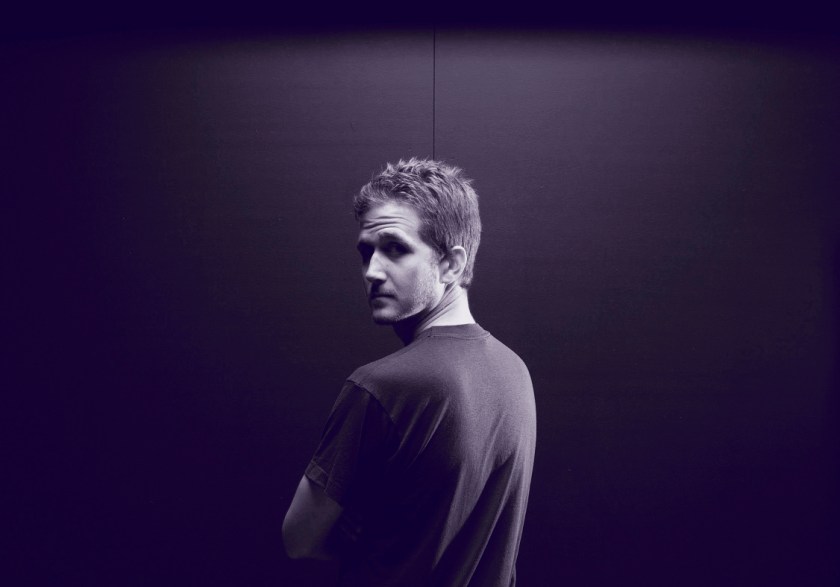Who or what inspired you to take up composing, and pursue a career in music?
When I was in high school I was sort of aimless in terms of the future, but I was very interested in music, mostly as a listener. So I decided to go back to the piano, but not in any kind of formal or academic way. I had been classically trained as a child, but hadn’t played in almost ten years, so I just approached it from a place of complete improvisation and experimentation. I would play “Let It Be” by the Beatles and then just improvise on that for about 30 minutes- things like that. And that freedom and exploration with music is what really started my path of pursuing it seriously as a composer and a pianist.
Who or what were the most significant influences on your musical life and career as a composer?
I’m most inspired by contemporary groups, often times very progressive, like Jaga Jazzist, Frank Zappa, Phish, Tigran Hamasyan, Ryuichi Sakamoto. Even though I don’t compose their style of music, it has always excited and inspired me. In general I’m inspired by artists that can’t really be categorized and tend to make music that is very original and different.
What have been the greatest challenges/frustrations of your career so far?
Being a musician, obviously one major challenge is just making a living. It’s a hard business and it takes a lot of perseverance and risk taking to make it professionally. And just battling against your own subconscious when it comes to believing that music making is a legitimate and rational thing to do with your life. I think I’m just now starting to really believe that what I’m doing for a living isn’t completely crazy, and that has taken years of determination and trial and error.
What are the special challenges/pleasures of working on a commissioned piece?
I’m a composer and a performer, so the only experience I have with “commissioned” pieces would be in the realm of music for visual media. I have a Master’s in music for visual media, and have done quite a few projects for films, animation, ads, etc. I would say the challenges are that you have a client and so you are first and foremost responsible for making him/her happy. And sometimes that can really be a challenge. But the pleasures are when you are seeing that work in the finished product- that’s quite a good feeling after all of the work and patience that went into it.
What are the special challenges/pleasures of working with particular musicians, singers, ensembles and orchestras?
The first time I saw a string quartet performing a piece that I had composed was probably one of the most memorable moments of my life. In this world of digital audio workstations and virtual instruments, you can go years producing music without ever coming into contact with another real life musician. So being in a studio and hearing a group of true professionals performing your work, there’s just really nothing better.
Of which works are you most proud?
I would say I am most proud of my latest album “Dream Variations”. I wrote, performed, mixed, and mastered the album myself, as well as putting together the cover art, distribution and release, press, etc. It was a DIY venture from start to finish, and I’m really happy with the way the tone of the album worked out, and especially with how it’s been received.
How would you characterise your compositional language?
I guess I would have to say minimal, or modal. For the past few years I have been writing a lot of compositions completely within one mode or another, and I definitely try to keep things as minimal as possible, while still trying to get everything across to the listener.
How do you work?
I have an acoustic piano in my studio which I play, mostly in a stream of consciousness style, in order to get inspired and come up with ideas. Usually once I come up with an idea, I then open Logic on my computer and record it with my midi controller/electric piano. And then I’m pretty much working “in the box” producing the track, arranging strings, or other instruments, etc. And if live musicians are needed then I would book studio time and have them track over what was already there, and then mix and master everything and send it out to the world!
Who are your favourite musicians/composers?
There are too many to count really, but off the top of my head: Ryuichi Sakamoto, Hiromi, Tigran Hamasyan, Keith Jarrett, Steve Reich, The National, Beethoven, Ravel, E.S.T., Bela Fleck… I could go on and on.
As a musician, what is your definition of success?
Being happy and doing what you are passionate about doing, and making enough money from doing that to get by. As long you are making enough to survive and you are truly happy, I don’t think there’s anything more successful than that. And I think that goal is actually a lot more difficult to achieve than it sounds.
What do you consider to be the most important ideas and concepts to impart to aspiring musicians?
Be yourself, do what makes you happy and create the music that is genuinely you. And if you truly want to do music for a living, get ready to work really hard, and most importantly, never give up.
Tristan Eckerson’s new album Dream Variations is out now. Further information
